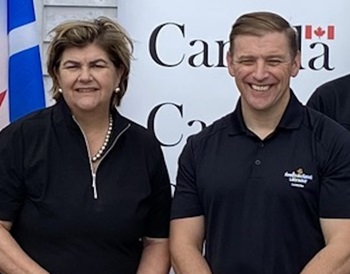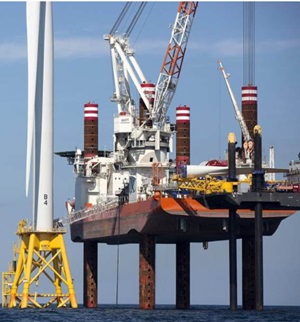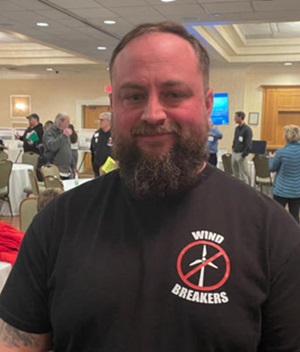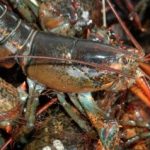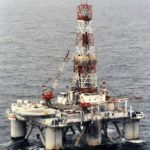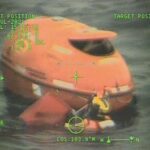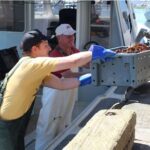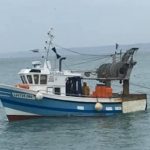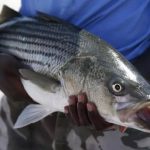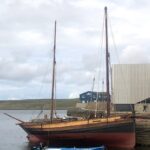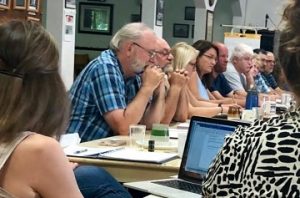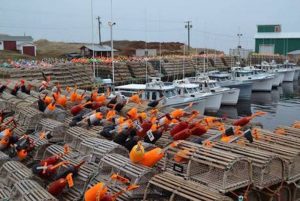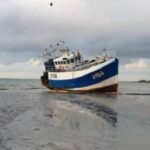Author Archives: borehead - Moderator
F/V Aleutian Storm: Coast Guard working to free 57-ton fishing boat grounded near Bodega Bay
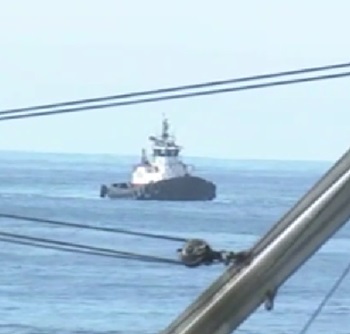 The Coast Guard says the vessel ran aground during rough seas Friday night. The ‘re-floating’ mission is urgent before the boat becomes a pollution hazard from leaking fuel. By air, land and sea, there’s a major operation happening on a Sonoma County beach. Dozens of people working to get the 58-foot Aleutian Storm back into the Pacific. Trouble is, she’s stuck in several feet of sand. The Coast Guard said the plan Monday was to attach a tow line between to the Aleutian Storm and a tug boat offshore and pull her off the beach when the tide comes in. Video, more, >>click to read<< 07:15
The Coast Guard says the vessel ran aground during rough seas Friday night. The ‘re-floating’ mission is urgent before the boat becomes a pollution hazard from leaking fuel. By air, land and sea, there’s a major operation happening on a Sonoma County beach. Dozens of people working to get the 58-foot Aleutian Storm back into the Pacific. Trouble is, she’s stuck in several feet of sand. The Coast Guard said the plan Monday was to attach a tow line between to the Aleutian Storm and a tug boat offshore and pull her off the beach when the tide comes in. Video, more, >>click to read<< 07:15
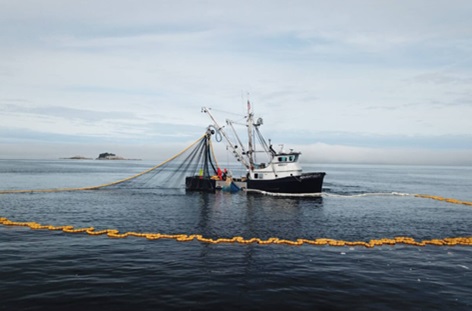
The Adventurous life of commercial fishing
With crabbing season just around the corner, the five-person crew of the fishing vessel Adventurous is about to embark. Led by owner and captain Shon Landon, they face brutally long days prepping and converting the ship from its role as a salmon seiner for the summer season to an efficient crabber for the winter. There is both anticipation and excitement at the start of a new season; a successful haul involves planning, reviewing data, strategic decision-making, skilled teamwork, and a splash of luck. In a word, it is truly adventurous. While Landon does not hail from generations of fishermen, he still came into the industry at a young age, taking on his first job on a troller at just 12 years old. His family had moved up to Alaska after his father took a job in the logging industry. When Landon later got a job seine fishing on another vessel, he knew he had found his true passion. Photos, more, >>click to read<< 18:09
Our Fragile Oceans: Is It Too Late to Rethink Floating Wind Turbine Power Off Our California Coastline?
 On January 24, 2024, Democrat Congressman Jared Huffman gave a speech in Humboldt County applauding the securing of $426 million federal grant dollars for the establishment of floating wind farming turbines off the Humboldt County coastline. Local leaders, commissions, private and public businesses, and the indigenous community seemed to be onboard. East coast fishermen recently have been battling the establishment of wind powered generators along their coastline. Many claim that these wind turbines will effectively ruin the oceanic fisheries along the east coast of the United States. One also must question the ultimate expanse of such an infrastructure rollout. That said, my preliminary ballpark calculations (with a continuous high level of efficiency of the turbine units) could only provide a range of 0.7% to 3.0% of the needs of California households (under the current grants) and that would exclude any commercial usage. more, >>click to read<< by Jeff Wyles 11:43
On January 24, 2024, Democrat Congressman Jared Huffman gave a speech in Humboldt County applauding the securing of $426 million federal grant dollars for the establishment of floating wind farming turbines off the Humboldt County coastline. Local leaders, commissions, private and public businesses, and the indigenous community seemed to be onboard. East coast fishermen recently have been battling the establishment of wind powered generators along their coastline. Many claim that these wind turbines will effectively ruin the oceanic fisheries along the east coast of the United States. One also must question the ultimate expanse of such an infrastructure rollout. That said, my preliminary ballpark calculations (with a continuous high level of efficiency of the turbine units) could only provide a range of 0.7% to 3.0% of the needs of California households (under the current grants) and that would exclude any commercial usage. more, >>click to read<< by Jeff Wyles 11:43
Lifelong commercial fisherman Jeremy Davis of Maine, has passed away
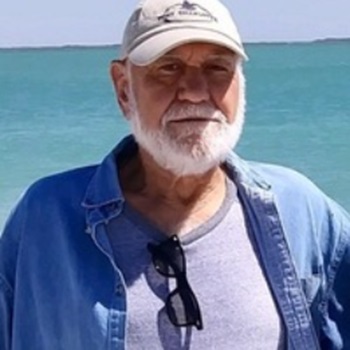 Jeremy G. Davis died unexpectedly on Saturday, January 27, 2024, at York Hospital after a short illness. Jeremy was a lifelong commercial fisherman. He crewed and eventually captained boats for others out of ports in Maine, New Hampshire, and Massachusetts in his early years. Eventually, Jeremy purchased his first commercial fishing boat, a 42′ boat fittingly named the F/V Chutzpah. This allowed him to stay closer to home, support his young family, and avoid the extended offshore trips on larger vessels. His love for fishing was not just a job; it was his life’s work. Jeremy was an extremely hard worker who rarely took a day off from running his fishing business. He eventually purchased his largest boat, the F/V Karen Lynn I, named after his wife of 42 years. Jeremy captained that boat until his semi-retirement a few short years ago when he started spending winters in Port Charlotte, Florida. more, >>click to read<< 09:34
Jeremy G. Davis died unexpectedly on Saturday, January 27, 2024, at York Hospital after a short illness. Jeremy was a lifelong commercial fisherman. He crewed and eventually captained boats for others out of ports in Maine, New Hampshire, and Massachusetts in his early years. Eventually, Jeremy purchased his first commercial fishing boat, a 42′ boat fittingly named the F/V Chutzpah. This allowed him to stay closer to home, support his young family, and avoid the extended offshore trips on larger vessels. His love for fishing was not just a job; it was his life’s work. Jeremy was an extremely hard worker who rarely took a day off from running his fishing business. He eventually purchased his largest boat, the F/V Karen Lynn I, named after his wife of 42 years. Jeremy captained that boat until his semi-retirement a few short years ago when he started spending winters in Port Charlotte, Florida. more, >>click to read<< 09:34
Swordfish are moving north in Canadian waters
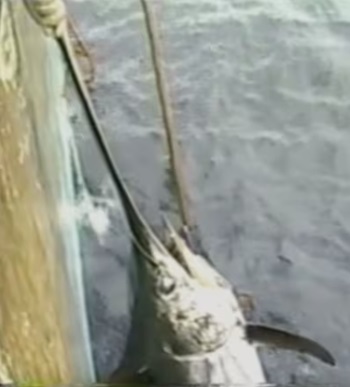 “It’s still unclear whether this is becoming the new normal due to climate change or if the biomass will eventually shift back again as we think it did historically,” said Fisheries and Oceans Canada biologist Kyle Gillespie. Nineteen-hundred tonnes of swordfish were landed in Canada last year. Nearly a third of the swordfish were taken off Newfoundland, where longline fishing boats from Nova Scotia trailed kilometres of baited hooks throughout much of the summer. Gillespie said this is a rapid shift from the previous decade, when the entire Canadian catch was concentrated along the Scotian Shelf and Georges Bank off southern Nova Scotia. more, >>click to read<< 08:46
“It’s still unclear whether this is becoming the new normal due to climate change or if the biomass will eventually shift back again as we think it did historically,” said Fisheries and Oceans Canada biologist Kyle Gillespie. Nineteen-hundred tonnes of swordfish were landed in Canada last year. Nearly a third of the swordfish were taken off Newfoundland, where longline fishing boats from Nova Scotia trailed kilometres of baited hooks throughout much of the summer. Gillespie said this is a rapid shift from the previous decade, when the entire Canadian catch was concentrated along the Scotian Shelf and Georges Bank off southern Nova Scotia. more, >>click to read<< 08:46
Uncharted Waters: The Hunkin Family’s Fight for Their Ancestral Fishing Trade
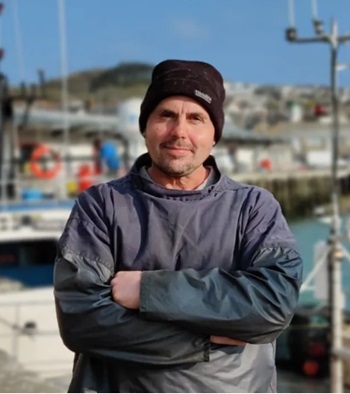 For 14 generations, the Hunkin family has braved the unpredictable waters off the Cornish coast, weaving their lives into the rhythm of the sea. But now, a sudden shift in government regulations has forced this storied fishing family to abandon their ancestral trade. As of January 1, 2024, the pollack catch quota has been set to zero, save for a minuscule by-catch allowance, leaving the Hunkins – and many like them – grappling with an uncertain future. Daniel Hunkin, the latest in a long line of seafarers, laments the lack of notice and communication from the government. “We relied on pollack for more than half our annual income,” he says, “We’ve had to sell our boats and face an uncertain future.” more, >>click to read<< 07:07
For 14 generations, the Hunkin family has braved the unpredictable waters off the Cornish coast, weaving their lives into the rhythm of the sea. But now, a sudden shift in government regulations has forced this storied fishing family to abandon their ancestral trade. As of January 1, 2024, the pollack catch quota has been set to zero, save for a minuscule by-catch allowance, leaving the Hunkins – and many like them – grappling with an uncertain future. Daniel Hunkin, the latest in a long line of seafarers, laments the lack of notice and communication from the government. “We relied on pollack for more than half our annual income,” he says, “We’ve had to sell our boats and face an uncertain future.” more, >>click to read<< 07:07
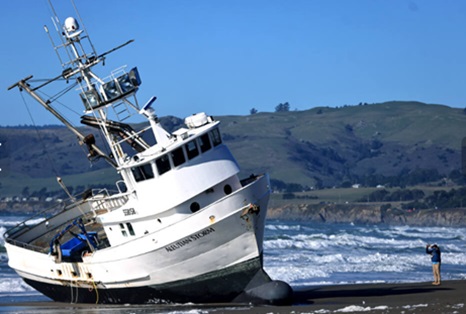
Fishing boat aground near Bodega Bay
F/V Aleutian Storm’s owner, watching his fishing boat stuck fast in the sand at South Salmon Creek Beach, didn’t want to talk to a reporter. His livelihood was aground, out of commission and, despite its sturdy build, in some peril. His 58-foot vessel had run aground near Bodega Bay late Friday night — all four of the crew aboard got off safely, the Coast Guard said — and Chris Fox was waiting for a tugboat he’d hired to arrive from San Francisco. “If you lost your house, if you lost your means of making a living, all of that is similar to what’s happening, “said Dick Ogg, a veteran fisherman who is president of the Bodega Bay Fishermen’s Marketing Association. ”Chris works so hard. He’s such a good person and it’s just devastating to see something like this happen. He had been out Friday night fishing, too, Ogg said, and it “had been miserable.” “There was probably close to 20 knots of wind and, you know, it had been building and it just was nasty,” he said. Five photos, more, >>click to Read<< 15:14
Fisheries minister says seal is the new lobster
 “When properly prepared, it is delicious,” said Lebouthillier at a Senate Fisheries Committee (SFC) meeting. When it comes to seal meat, Lebouthillier called for it to be exploited. “Making it a consumer product is a priority,” she said. “We did it with lobster.” With regulators, she said they must “use this acquired experience.” This means they do not need to reinvent the wheel. The Senate Fisheries Committee sought new markets for seal products since sales collapsed under a 2009 European Union export ban. The trade at its peak in 2006 was worth $34.3 million per year. more, >>click to read<< 11:40
“When properly prepared, it is delicious,” said Lebouthillier at a Senate Fisheries Committee (SFC) meeting. When it comes to seal meat, Lebouthillier called for it to be exploited. “Making it a consumer product is a priority,” she said. “We did it with lobster.” With regulators, she said they must “use this acquired experience.” This means they do not need to reinvent the wheel. The Senate Fisheries Committee sought new markets for seal products since sales collapsed under a 2009 European Union export ban. The trade at its peak in 2006 was worth $34.3 million per year. more, >>click to read<< 11:40
January storms leave many working waterfronts in Maine adrift
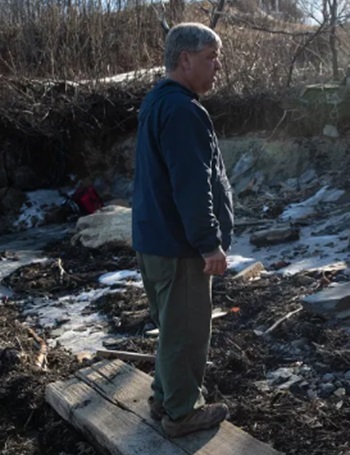 Chris Hole watched in horror last month as the storm pummeled his family’s fishing business at Lookout Point in Harpswell. It was Jan. 13, and the second of two powerful storms in less than a week leveled Henry Allen’s Seafood, a lobster wharf, wholesaler and retailer. Strong winds and high tides wiped out the dock’s seawall, drowned new refrigeration units and flooded buildings with waist-high water. Guy Baker left his fish house on Bailey Island that day so he wouldn’t have to bear witness. When he returned, the building that had stood on the edge of Baker’s family property for more than 80 years had been reduced to a pile of rubble on the shore. Farther up the coast in the Washington County town of Milbridge, all but the supporting structure of Chipman’s Wharf floated away at high tide during the Jan. 10 storm. Photos, more, >>click to read<< 10:11
Chris Hole watched in horror last month as the storm pummeled his family’s fishing business at Lookout Point in Harpswell. It was Jan. 13, and the second of two powerful storms in less than a week leveled Henry Allen’s Seafood, a lobster wharf, wholesaler and retailer. Strong winds and high tides wiped out the dock’s seawall, drowned new refrigeration units and flooded buildings with waist-high water. Guy Baker left his fish house on Bailey Island that day so he wouldn’t have to bear witness. When he returned, the building that had stood on the edge of Baker’s family property for more than 80 years had been reduced to a pile of rubble on the shore. Farther up the coast in the Washington County town of Milbridge, all but the supporting structure of Chipman’s Wharf floated away at high tide during the Jan. 10 storm. Photos, more, >>click to read<< 10:11
Gulf of St. Lawrence redfish population in decline even before fishery reopens, report finds
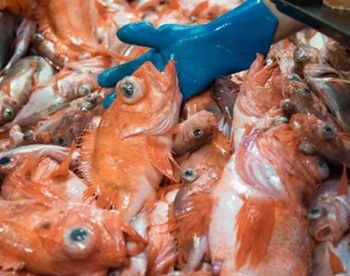 The latest scientific assessment of the redfish population in the Gulf of St. Lawrence has sobering news even as fishing groups in Atlantic Canada and Quebec fight over who will get to catch it: their numbers are rapidly shrinking. “I think we’re at the point that we’re clearly seeing that there’s a limit to this boom,” says federal scientist Caroline Senay, the redfish specialist at the Department of Fisheries and Oceans (DFO). The report comes in advance of DFO’s plan to reopen the fishery later this year after it collapsed in the early 1990s and has been closed since 1995. more, >>click to read<< 09:20
The latest scientific assessment of the redfish population in the Gulf of St. Lawrence has sobering news even as fishing groups in Atlantic Canada and Quebec fight over who will get to catch it: their numbers are rapidly shrinking. “I think we’re at the point that we’re clearly seeing that there’s a limit to this boom,” says federal scientist Caroline Senay, the redfish specialist at the Department of Fisheries and Oceans (DFO). The report comes in advance of DFO’s plan to reopen the fishery later this year after it collapsed in the early 1990s and has been closed since 1995. more, >>click to read<< 09:20
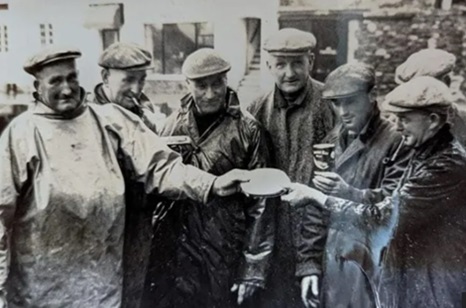
Cornwall family put boat up for sale after 300 years at sea
A family that has been fishing off the coast of Cornwall for 14 generations said they have quit the industry due to new government regulations. The Hunkin family, from Mevagissey, have been fishing for about 300 years, since the reign of King George I. However, on 1 January 2024 the pollack catch quota was set to zero, apart from a small by-catch allowance, in order to preserve stocks. Daniel Hunkin said he and others had since put their boats up for sale. More, He said the crew relied on pollack for more than half their annual income and he was worried for the industry as a whole. more, >>click to read<< 08:06
4 rescued after boat runs ashore in the North Bay
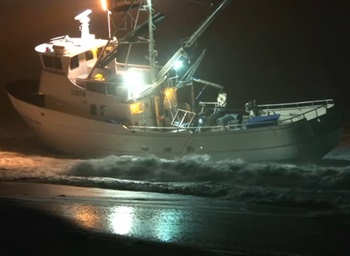 First responders rescued four crewmembers of a fishing boat that washed ashore near Bodega Bay Friday night. The boat ran around south of Salmon Creek Beach, according to Gino DeGraffenreid with the Gold Ridge Fire Protection District. “As always, the Sonoma Coast is extremely hazardous on occasion,” DeGraffenreid said. “And tonight was one of those occasions.” more, >>click to read<< 06:50
First responders rescued four crewmembers of a fishing boat that washed ashore near Bodega Bay Friday night. The boat ran around south of Salmon Creek Beach, according to Gino DeGraffenreid with the Gold Ridge Fire Protection District. “As always, the Sonoma Coast is extremely hazardous on occasion,” DeGraffenreid said. “And tonight was one of those occasions.” more, >>click to read<< 06:50
Coast Guard responds to grounded vessel near Bodega Bay
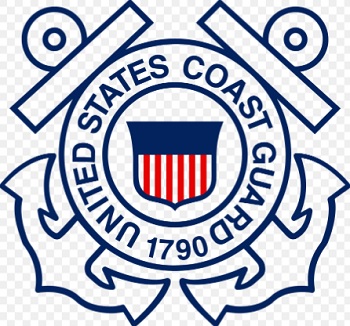 The Coast Guard responded to a report of a grounded vessel Friday night at Sonoma Coast State Park. This position is two miles southwest of Bodega Bay and is located within the Greater Farallones National Marine Sanctuary. Coast Guard Sector San Francisco watchstanders received a call via VHF-FM Channel 16 from the captain of the 58-foot commercial fishing vessel Aleutian Storm reporting that the vessel had run aground and needed assistance ungrounding. The captain also reported that all four crew aboard were uninjured and had immersion suits. more, >>click to read<< 20:08
The Coast Guard responded to a report of a grounded vessel Friday night at Sonoma Coast State Park. This position is two miles southwest of Bodega Bay and is located within the Greater Farallones National Marine Sanctuary. Coast Guard Sector San Francisco watchstanders received a call via VHF-FM Channel 16 from the captain of the 58-foot commercial fishing vessel Aleutian Storm reporting that the vessel had run aground and needed assistance ungrounding. The captain also reported that all four crew aboard were uninjured and had immersion suits. more, >>click to read<< 20:08
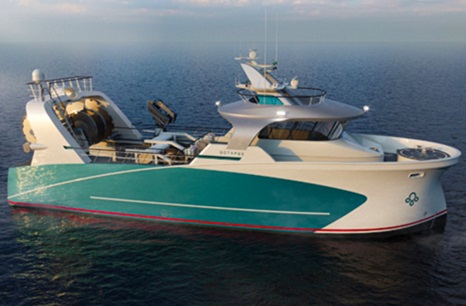
The Fishing Vessel of the Future
Project Octopus, the brainchild of Walter van Harberden, naval architect and one of the directors of Padmos, is more than just a fishing vessel. It is a vessel powered by a diesel-electric engine but could be entirely electric or powered by another energy source in the future. This could be possible thanks to its ‘modular’ structure. In concrete terms, the boat will have a basic hull with removable containers in which batteries or hydrogen can be stored. This principle of modularity will also enable the vessel to be versatile, so that it can be used for purposes other than fishing. ‘When the fishing season is over, we can replace the containers for storing fish with containers for other types of equipment,’ explains Walter van Harberden. Like a real octopus, the vessel will have several strings to its bow. It can be adapted to different fishing techniques: fly-shooter, single trawl or twin rig trawl. Photos, more, >>click to read<<
Scotian Shelf shrimp fishery braces for another cut
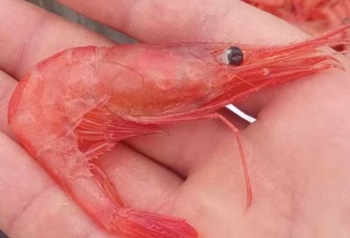 For a third straight year, the shrimp fishery off eastern Nova Scotia is facing a big quota cut with ocean conditions to blame. The recent scientific assessment for northern shrimp on the eastern Scotian Shelf showed environmental factors — including warmer ocean water due to climate change — are contributing to the poor condition of the stock, he says. And the response, he predicts, will be a reduction in the total allowable catch. The Department of Fisheries and Oceans (DFO) is expected to announce the 2024 shrimp quota in several weeks. more, >>click to read<< 10:59
For a third straight year, the shrimp fishery off eastern Nova Scotia is facing a big quota cut with ocean conditions to blame. The recent scientific assessment for northern shrimp on the eastern Scotian Shelf showed environmental factors — including warmer ocean water due to climate change — are contributing to the poor condition of the stock, he says. And the response, he predicts, will be a reduction in the total allowable catch. The Department of Fisheries and Oceans (DFO) is expected to announce the 2024 shrimp quota in several weeks. more, >>click to read<< 10:59
‘Wicked Tuna’ star meets Kaua‘i fishermen, scientist eager to resume local ahi research
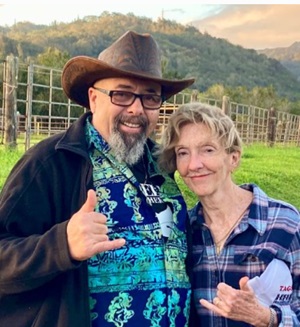 Reality television star Dave Marciano, captain of the fishing vessel Hard Merchandise on the long-running National Geographic series “Wicked Tuna”, has spent the last two weeks on a whirlwind tour of Kaua. The famous fisherman, who visited with his family, was on vacation. However, he was also excited to reignite a long-running initiative between local commercial fishermen and marine biologists – which has all but stopped in the wake of the COVID-19 pandemic and a lack of funding. The local fishermen are more than Marciano’s colleagues: They’re also some of his biggest fans. When not discussing their shared profession, some could not resist taking a selfie or getting an autograph from the avuncular East Coast captain. Photos, more, >>click to read<< 08:46
Reality television star Dave Marciano, captain of the fishing vessel Hard Merchandise on the long-running National Geographic series “Wicked Tuna”, has spent the last two weeks on a whirlwind tour of Kaua. The famous fisherman, who visited with his family, was on vacation. However, he was also excited to reignite a long-running initiative between local commercial fishermen and marine biologists – which has all but stopped in the wake of the COVID-19 pandemic and a lack of funding. The local fishermen are more than Marciano’s colleagues: They’re also some of his biggest fans. When not discussing their shared profession, some could not resist taking a selfie or getting an autograph from the avuncular East Coast captain. Photos, more, >>click to read<< 08:46
Why it’s crucial that my generation remembers the men who were lost on the Fishing Trawler Gaul
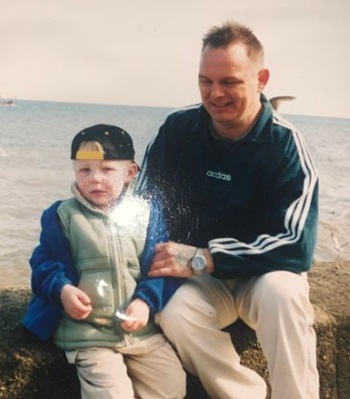 I come from a long line of people who worked at sea. At the age of 16, my dad followed in his own dad’s footsteps. My other grandad was a ship’s welder. Growing up, when my dad was at home in his month off the ships, he would drag me anywhere and everywhere that had something to do with Hull’s maritime history: the Arctic Corsair, the Marina, The Deep. “You should’ve seen it in its prime, before the cod wars and her,” he would say. “Her” being Margaret Thatcher. One thing that I was never told about back then, understandably, was the danger of working at sea. Dad would only tell me about the glories of travelling the world and the comradery among the crew. It’s only now that I’m older and have started to look into Hull’s history for myself that that I understand why it was one of the most dangerous jobs in the world. more, >>click to read<< 06:42
I come from a long line of people who worked at sea. At the age of 16, my dad followed in his own dad’s footsteps. My other grandad was a ship’s welder. Growing up, when my dad was at home in his month off the ships, he would drag me anywhere and everywhere that had something to do with Hull’s maritime history: the Arctic Corsair, the Marina, The Deep. “You should’ve seen it in its prime, before the cod wars and her,” he would say. “Her” being Margaret Thatcher. One thing that I was never told about back then, understandably, was the danger of working at sea. Dad would only tell me about the glories of travelling the world and the comradery among the crew. It’s only now that I’m older and have started to look into Hull’s history for myself that that I understand why it was one of the most dangerous jobs in the world. more, >>click to read<< 06:42
Commercial Cod Harvesters Opposed to Drastic Increases in Rec. Fishery
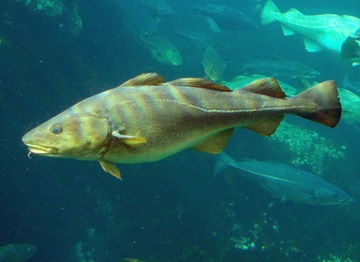 Commercial fish harvesters in Newfoundland and Labrador are calling for stricter monitoring of the recreational cod fishery in the province and assert that unaccounted for removals in the recreational fishery could threaten the conservation integrity of the stock. The petition to the federal government supported by Conservative MP Clifford Small is to more than double the number of days in the recreational fishery from 39 to roughly 90. Recreational removals are a significant source of uncertainty in DFO science and management and is blatantly contradictory to the Department’s mandate to monitor fish landings. more, >>click to read<< 14:04
Commercial fish harvesters in Newfoundland and Labrador are calling for stricter monitoring of the recreational cod fishery in the province and assert that unaccounted for removals in the recreational fishery could threaten the conservation integrity of the stock. The petition to the federal government supported by Conservative MP Clifford Small is to more than double the number of days in the recreational fishery from 39 to roughly 90. Recreational removals are a significant source of uncertainty in DFO science and management and is blatantly contradictory to the Department’s mandate to monitor fish landings. more, >>click to read<< 14:04

Baffling mystery of tragic trawler that sank killing 36 – as heartbroken families demand answers 50 years on
The fishing trawler Gaul went missing during a fierce storm in the Barents Sea half a century ago in what remains Britain’s worst trawler disaster. The families of the missing seamen from the Hull area endured an agonizing wait for news on the morning of February 9, 1974. The fact that it took 23-years to find the trawler fuelled speculation about the disaster which claimed so many lives. The families of the victims spent years trying to establish why the trawler sank. The Gaul sank during the height of the Cold War and it was common knowledge that the security services had used trawlers to carry out spying missions in the 1960s. Video, photos, more, >>click to read<< 11:22
Irish fishermen fury over ‘unbelievable and outrageous’ secret EU deal talks to give Iceland access to our waters
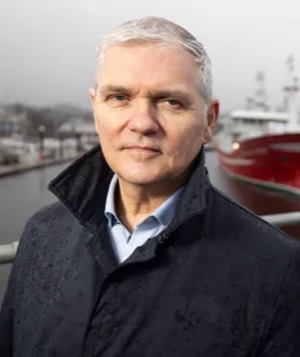 Irish fishermen are up in arms over secret EU talks to give Iceland access to our fishing waters. Our trawlermen are being allocated an extra 15 million Blue Whiting quota this year on condition that Icelandic crews can fish here. The Irish Government claims the talks are “informal” and nothing has been decided yet. But Aodh O’Donnell of the Irish Fish Producers Organisation (IFPO) blasted that they must fight for our fishing industry the way other EU member states do. “They are not an EU member. How is this a fair deal? “Are we getting to catch around 15 million of extra fish in Iceland or EU waters for this deal? No. more, >>click to read<< 19:21
Irish fishermen are up in arms over secret EU talks to give Iceland access to our fishing waters. Our trawlermen are being allocated an extra 15 million Blue Whiting quota this year on condition that Icelandic crews can fish here. The Irish Government claims the talks are “informal” and nothing has been decided yet. But Aodh O’Donnell of the Irish Fish Producers Organisation (IFPO) blasted that they must fight for our fishing industry the way other EU member states do. “They are not an EU member. How is this a fair deal? “Are we getting to catch around 15 million of extra fish in Iceland or EU waters for this deal? No. more, >>click to read<< 19:21
A report has concluded the sinking of a Cadgwith based fishing boat caused by extensive modifications
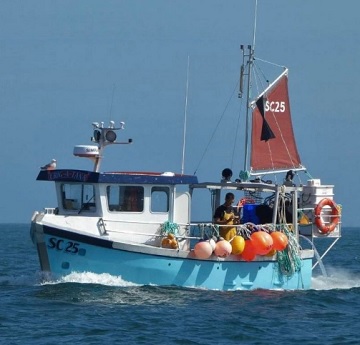 Skipper Brett Jose and crewman Callum Hardwick were rescued after an ordeal in which Mr Jose had to escape through the wheelhouse window as the 25 foot crabbed suddenly heeled over and capsized. Following the sinking in November 2022 a Crowdfunder was launched by the Cadgwith community to buy a new boat for the pair. The Crig-A-Tana had been fitted with a new wheelhouse, engine, safety kit and deck equipment with the help of Government grants but all had been approved by the Maritime and Coastguard Agency. photos, more, >>click to read<< 09:18
Skipper Brett Jose and crewman Callum Hardwick were rescued after an ordeal in which Mr Jose had to escape through the wheelhouse window as the 25 foot crabbed suddenly heeled over and capsized. Following the sinking in November 2022 a Crowdfunder was launched by the Cadgwith community to buy a new boat for the pair. The Crig-A-Tana had been fitted with a new wheelhouse, engine, safety kit and deck equipment with the help of Government grants but all had been approved by the Maritime and Coastguard Agency. photos, more, >>click to read<< 09:18
Alaska tribes, green group take aim at planned bottom-trawling study in northern Bering Sea
 Three tribal governments and an environmental organization on Thursday served notice to federal agencies that they are planning a lawsuit to block a fishing experiment along the seafloor in the northern Bering Sea. The practice of bottom trawling, sweeping a net to catch fish on or near the seabed, is currently prohibited in the Northern Bering Sea, which is abbreviated in legal documents as NBS. But the National Oceanic and Atmospheric Administration’s National Marine Fisheries Service is planning to deploy some commercial trawling gear in selected spots over the coming summers to see what impacts, if any, result to the habitat and the marine life dependent on it. The research project is called the Northern Bering Sea Effects of Trawling Study, or NBET. It is focused on specific areas north and south of St. Lawrence Island and would potentially simulate effects of commercial harvests. more, >>click to read<< 08:10
Three tribal governments and an environmental organization on Thursday served notice to federal agencies that they are planning a lawsuit to block a fishing experiment along the seafloor in the northern Bering Sea. The practice of bottom trawling, sweeping a net to catch fish on or near the seabed, is currently prohibited in the Northern Bering Sea, which is abbreviated in legal documents as NBS. But the National Oceanic and Atmospheric Administration’s National Marine Fisheries Service is planning to deploy some commercial trawling gear in selected spots over the coming summers to see what impacts, if any, result to the habitat and the marine life dependent on it. The research project is called the Northern Bering Sea Effects of Trawling Study, or NBET. It is focused on specific areas north and south of St. Lawrence Island and would potentially simulate effects of commercial harvests. more, >>click to read<< 08:10
The Plaintiffs in the Supreme Court’s Big Chevron Case Moonlight as Anti–Offshore Wind Activists
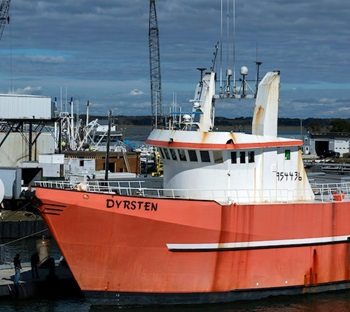 William Bright, Wayne Reichle, and Stefan Axelsson have a lot in common. They live in Southern New Jersey and run commercial fishing operations whose catch includes Atlantic herring, silvery little bottom-dwellers that feed on krill and fish larvae. They are plaintiffs in a Supreme Court case that could soon kneecap federal agencies’ ability to write and enforce regulations. And for the past few years, they’ve had a common adversary: offshore wind developers. Plaintiffs in one of the most closely watched cases this term participated in efforts to block two major renewables projects off the coast of New Jersey, Ocean Wind 1 and 2. The campaign against Ocean Wind 1 and 2 was aided by a network of conservative groups and corporate backers, who rejoiced when Danish energy firm Ørsted canceled both projects in November. Now, when the Supreme Court rules on Chevron this spring, these groups may have a much bigger win to celebrate. more, >>click to read<< 06:53
William Bright, Wayne Reichle, and Stefan Axelsson have a lot in common. They live in Southern New Jersey and run commercial fishing operations whose catch includes Atlantic herring, silvery little bottom-dwellers that feed on krill and fish larvae. They are plaintiffs in a Supreme Court case that could soon kneecap federal agencies’ ability to write and enforce regulations. And for the past few years, they’ve had a common adversary: offshore wind developers. Plaintiffs in one of the most closely watched cases this term participated in efforts to block two major renewables projects off the coast of New Jersey, Ocean Wind 1 and 2. The campaign against Ocean Wind 1 and 2 was aided by a network of conservative groups and corporate backers, who rejoiced when Danish energy firm Ørsted canceled both projects in November. Now, when the Supreme Court rules on Chevron this spring, these groups may have a much bigger win to celebrate. more, >>click to read<< 06:53
Welding accident sparks fishing boat fire on Fairhaven waterfront
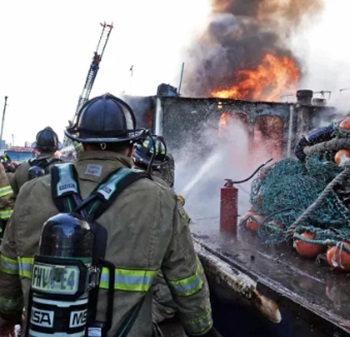 A fishing vessel recently acquired by the owners of BASE Seafood Auction caught fire and burned on the Fairhaven side of the harbor early Thursday morning. The 78-foot groundfish trawler F/V Carrabassett was in the process of being decommissioned, according to Fairhaven Harbor Master Tim Cox, who was on scene the morning of the fire working with an environmental cleanup crew. He said the fire was sparked by welders using a cutting torch to carve out the boat’s piping. The welders called in the fire just before 7 a.m., Cox said. Thick clouds of black smoke could be seen rising over the harbor as firefighters from Fairhaven, New Bedford and Mattapoisett worked to knock down the flames using hoses and a foam fire suppressant. The fire, which at its peak had fully engulfed the cabin, was contained by about 8 a.m., Cox said. 6 photos, more, >>click to read<< 20:39
A fishing vessel recently acquired by the owners of BASE Seafood Auction caught fire and burned on the Fairhaven side of the harbor early Thursday morning. The 78-foot groundfish trawler F/V Carrabassett was in the process of being decommissioned, according to Fairhaven Harbor Master Tim Cox, who was on scene the morning of the fire working with an environmental cleanup crew. He said the fire was sparked by welders using a cutting torch to carve out the boat’s piping. The welders called in the fire just before 7 a.m., Cox said. Thick clouds of black smoke could be seen rising over the harbor as firefighters from Fairhaven, New Bedford and Mattapoisett worked to knock down the flames using hoses and a foam fire suppressant. The fire, which at its peak had fully engulfed the cabin, was contained by about 8 a.m., Cox said. 6 photos, more, >>click to read<< 20:39
Protesting fishermen gather at DFO office to voice frustration over redfish quota
 Outside the Department of Fisheries and Oceans office in Corner Brook, a crowd of about 50 people gathered to express their frustration with a recent federal decision to allot a 19 per cent share of the redfish quota to Newfoundland and Labrador. One protestor, Rendell Genge from Anchor Point, took to the microphone and asked the crowd to raise their hands if they’ll lose their jobs if the redfish quota isn’t increased. “Redfish was our only hope. We was let down. No one was any more disappointed than I was when this announcement was made,” said Genge. “The battle is just beginning, in my books.” Thursday afternoon’s protest was organized by the Fish, Food and Allied Workers union (FFAW), and secretary treasurer Jason Spingle said the crowd was there to show their resolve and disappointment regarding the recent federal decision. more, >>click to read<< 16:49
Outside the Department of Fisheries and Oceans office in Corner Brook, a crowd of about 50 people gathered to express their frustration with a recent federal decision to allot a 19 per cent share of the redfish quota to Newfoundland and Labrador. One protestor, Rendell Genge from Anchor Point, took to the microphone and asked the crowd to raise their hands if they’ll lose their jobs if the redfish quota isn’t increased. “Redfish was our only hope. We was let down. No one was any more disappointed than I was when this announcement was made,” said Genge. “The battle is just beginning, in my books.” Thursday afternoon’s protest was organized by the Fish, Food and Allied Workers union (FFAW), and secretary treasurer Jason Spingle said the crowd was there to show their resolve and disappointment regarding the recent federal decision. more, >>click to read<< 16:49
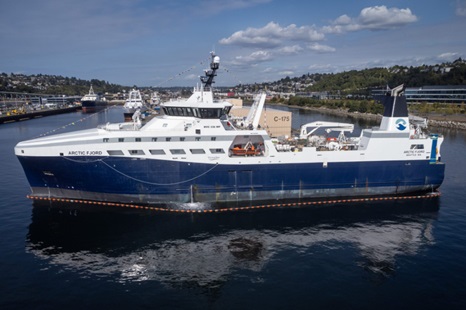
Vessel Review: F/V Arctic Fjord – Alaska Pollock Trawler to be Deployed in Bering Sea
Seattle-based seafood company the Arctic Storm Management Group has taken delivery of a new trawler-processor optimised for catching Alaska pollock in the Bering Sea. The newer F/V Arctic Fjord has a length of 324 feet (99 metres), a beam of 68.9 feet (21 metres), a draught of 28.5 feet (8.7 metres), space for 152 crewmembers and processing personnel, and a wave-piercing bow that reduces fuel consumption and slamming in rough seas. Approximately 4,000 cubic metres of fish products including fish meal and fish oil can be stored in the holds. Pkotos, specs, more, >>click to read<< 14:25






